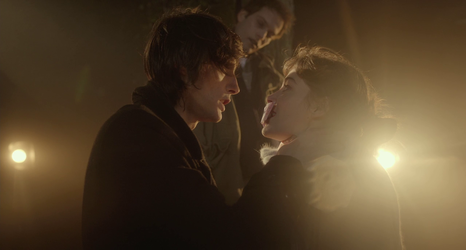 Stepping behind the camera for the first time in 15 years, Andrzej Zulawski's return to directing sees the enigmatic filmmaker tackle equally ambiguous source material with Witold Grombrowicz' Cosmos, a challenging text known for its various narrative deviations and verbal invention. The story of Cosmos is centered around Witold, a young man who has just failed the bar, who along with his friend Fuchs, who has just quit the fashion industry, are staying at a quaint guesthouse run by Madam Woytis. Upon entering this quaint space, Wilfod begins to become obsessed with Mada Woytis daughter, Lena, sending the young man spiraling down a path of illogical thought, surrealistic imagery, and foreboding omens as he struggles to both comprehend and suppress his intense passion for this young, married woman. Enigmatic, frustrating, and ultimately profound, Cosmos is frantic exploration of emotion and desire, which finds Zulawski once again attempting to comprehend the uncomprehendable in human emotion, more specifically the powerful emotions of love of and desire. Full of the filmmaker's trademark frenectism, Cosmos explores the disconnect between passion and intellect, presenting a manic portrait of one man's love for another that personifies the detachment which can exist between emotion and intellect. Cosmos is a film featuring imagery that could be described as both seductive and repulsive, with Zulawski blurring the line between these two preconceived constructs as a way to comment on both the negatives and positives of desire and love. To Zulawkski, Love and desire are extremely powerful forces that are not void of darkness or ugliness when harnassed incorrectly, and perhaps Cosmos most compelling aspect is simply its ability to capture the raw power and messiness which desire has on the human psyche. Cosmos is a film that suggests love, desire, and emotion as a whole are resistant to simple human explanation, with Zulawki's frantic direction defiantly expressing this belief through surrealistic logic and stunning imagery. A challenging experience that puts way more emphasis on emotion than plot or story, Zulawski's final film, Cosmos, is worthy send-off, featuring the filmmaker's frantic, intoxicating style and penchant for challenging the personal constructs of how we as humans perceive and define our world.
0 Comments
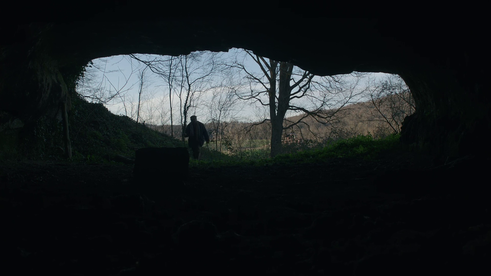 Alessio Rigo de Righi & Matteo Zoppis' Il Solengo is a documentary focusing on the life of Mario de Marcella, a man who lived in utter seclusion, alone in a cave for over 60 years in the remote Italian countryside. Given the nickname "Il Solengo" by the townspeople, which means "lone boar thats been off from the pack", the circumstances of Mario's solitude are a bit of mystery. None of the townspeople know exactly why Mario decided to live this life as a hermit, but each of them offer their own elaborate stories as to what they believe happened to Mario, with the varied reasons often contradicting with one and other. While talking head documentaries tend to offer little appeal to me as a viewer, due primarily to the didactic nature of their storytelling, in Il Solengo this method serves a major purpose, documenting humanities' incessant nature to speculate and attempt to understand. Interviewing various hunters and other townspeople who have had some form of interaction with Mario, Il Solengo becomes a study of humanities attempt to define what they cannot simply understand, as the film argues we as individuals cannot judge someone when we haven't lived in their shoes, haven't felt their pain. The photography of the film is simple, yet gorgeous, documenting the day-to-day quiet moments of some of these townsfolk, exhibiting how their quiet idyllic society solitude draws comparisons to the life of solitude chosen by Mario. Il Solengo captures the well-intentioned hypocrisy of some of these characters, who talk of Mario's seclusion as strange and enigmatic while they see their own societal seclusion as empowering, unable to see the clear similarities between their choices in life and the more extreme, but similar hermit lifestyle chosen by Mario. Nothing throughout Il Solengo is presented as fact only hearsay of various stories of interaction with Mario, and perhaps the film's most important attribute is the important reminder it presents in how the stories we hear about pain or torment are remotely the same as living those moments. Il Solengo captures that truly understanding ones situation is rare from a societal perspective, as the film becomes a deeply fascinating, humanistic exploration of the conflicting forces that exist between individuals and collectivism, particularly in times of perceived pain. 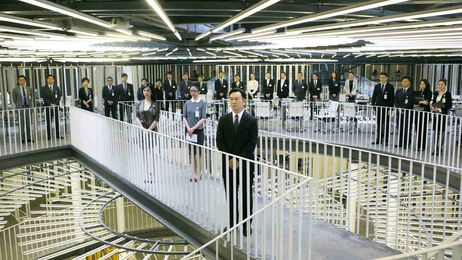 Johnnie To's latest film, Office, continues the filmmakers' legacy of being one of the most eclectic and singular talents working in contemporary cinema, a stylish 3D musical set against the backdrop of the 2008 financial crisis. Set almost entirely in a lavish corporate high-rise, Office follows two new assistants, Lee Xiang and Kat, who have just joined the successful team of financial firm Jones & Sun. Lee Xiang is young and naive, entering the workplace with noble intentions, while Kat is much more reserved and mysterious, hiding a secret. The two young assistants start at Jones & Sunn right when the CEO plans to take the company public, but when a company audit exposes a great deal of corruption, individual bonuses become threatened and the darker underbelly of capitalism which is propelled by greed is exposed. Johnnie To's Office is a film that doesn't completely work as an indictment of capitalism due largely to a script that never comes together, lacking the nuance and stakes necessary for its satirical wings to truly fly. While this is unfortunate it almost doesn't matter in the end, as Johnnie To's Office is one of the most impressive visual experiences in recent years, a film that features To's visual flair and kinetic camera, but also some of the most impressive production design in recent memory. The art & production design of Office would make Jacques Tati blush, featuring extravagant office designs that are grandiose and excessive, much like the world of high finance and humanities' penchant for luxury and greed. The set designs visually captures the themes of the story, even becoming dare I say, Kaufka-esque in nature when things begin to collapse for some of our financial advisors . The cinematography has so much flair, energy, and style, with the musical element fitting right into To's stylish directorial style, making Office a film that must be seen. Even if a modern day musical set against the backdrop of the 2008 financial crisis isn't your thing, there is simply no denying that Johnnie To continues to be one of the few master craftsman in contemporary cinema, an artist who marches to the beat of his own drum. 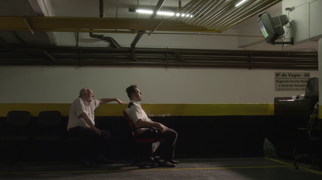 A deeply personal documentary, Sergio Oksman's O Futebol documents the filmmaker's experiences as he tries to reconnect with his father, a man which he hasn't seen for over 20 years. In the days leading up to World Cup, Sergia returns to the place he grew up, Sao Paulo, proposing to his father that they watch all the matches together, similar to the time they shared when Sergio was a kid. Rekindling their father-son relationship over the month long schedule of the World Cup calendar requires commitment, and as the two spend the time together, fulfilling their pact to watch all the matches, both Sergio and his father, Simao see their relationship open up and venture into unknown territories. O Futebol is an observant study of familiar bonds, documenting one man as he struggles to reconnect with his father over a game which they both love. Maintaining a high level of objectivity in documenting the attempted rekindling of an old relationship, O Futebol delivers what could only be described as a palpable level of unease early on- exhibiting the awkward silences, the varied small talk, and how conversations about football provide a reprieve when necessary. Early on in their journey to watch the matches together this father and son almost solely interact by talking about football, with the film capturing the importance of shared interests, with football being the inciting incident if you will, for these two characters, particularly Simao to open up a bit about their personal life, past mistakes, and current struggles. The more time the viewer spends with Simao, the more we see his personal struggles, as the film slowly reveals a man in Simao who has chosen a life of solitude, a man who himself laments about his miserable existence, one where he has shown little empathy towards his family, and where his only passion for life seems to be derived directly from football. Aesthetically speaking, O Futebol is subtlety brilliant, a film that maintains its overall subjectivity while capturing the inner emotions of its characters through visual storytelling. Early on in the film, O Futebol is shot in a way that sees both father and son almost never directly facing each other, their visual attention positioned elsewhere. Whether it be in a car, or at the bar watching one of the latest matches, father and son are visually documented with their attention towards something else, wiith the film visually expressing the void in their relationship, the subtle detachment which exists even when they share the same space. Simao in partciular is photographed with wide lens that creates large empty compositions, with O Futebol documenting the state of an old man in solitude, forced to face this life he chose due to his lack of interest in family relationships. Without going into details, O Futebol is an intimate examination of father and son, a poetic and tragic film that through observant detail provides a beautiful, objective documentary filmmaking about one man in Sergio who uses his art to come to terms with his relationship with his father. 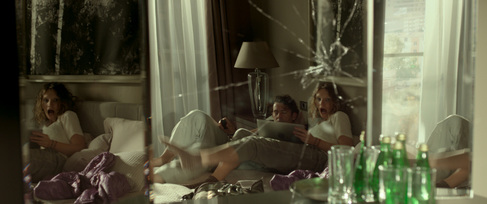 A cinematic puzzle that is as intriguing as it is frustrating, Jerzy Skolimowski's 11 Minutes is a purposely enigmatic tale featuring a series of thinly veined characterizations, each of which seemingly has very little connection with one and other besides the timeline and location which they all exist in. Skolimowski's 11 Minutes is a frantic puzzle that offers very little clues to the exact connection between its various characters, with a jealous husband, his beautiful actress wife, and a sleazy film director offering the only real semblance of connection throughout the narrative. While 11 minutes is a frustrating experience at first, where the viewer is completely in the dark, as the film progresses, it becomes clear that Skolimowski is intentionally offering up these thinly veiled characterizations, providing a cross-section of contemporary urbanites whose connection itself is limited by sharing the same space. These characters' lives are exhibited in what could almost be described as vignettes, with the visual aesthetic evoking a sense of surveillance and voyeurism, completely void of context outside of the exact moment in which it documents. It's only the ending at the very end of 11 Minutes that Skolowski's vision completely came into focus for me, a bombastic display of violence that feels completely out of nowhere. From a narrative and character perspective the ending evokes very litttle from the audience due to the thinly veiled characterizations, but thematically the film comes into focus, capturing the unpredictability of life, with the filmmaker suggesting that our thinly veiled attempts of safety through surveillance offer up merely a false sense of security. 11 Minutes is frustrating and enigmatic until it isn't, a film that challenges the viewer through much of its 70 minute running time only to pull back the current in its finale and reveal its true intentions. Skolimowski's camera itself, everything leading up to teh finale of 11 Minutes is a symbolic representation of mass surveillance, yet the death and destruction comes anyway, as we the viewer, much like mass surveillance, struggle to connect the details. I could certainly understand that some people wiill find the film's strong ending way too little too late, but for me, 11 Minutes' reveals itself as a powerful, angry commentary on surveillance, focusing not so much on the privacy concerns, which are more obvious, but more so on the larger ideal that mass surveillance offers very little ability to protect ourselves from the uncertainty of circumstances of everyday life. 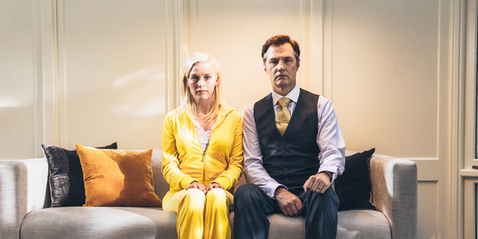 David Farr's The Ones Below is pulpy urban thriller focusing on the darker aspects of maternity, politeness, and parental responsibility, which follows Kate and Justin, a young couple living in a London duplex who are eagerly awaiting the birth of their first child. When a charming, albeit enigmatic couple in Jon and Teresa, who are also expecting, move into the apartment downstairs, Kate and Justin are happy to finally have neighbors, but what at first feels like a shared experience between two couples that are expecting their first child soon turns into a sinister and psychological battle of wills, with Kate in particularly beginning to suspect foul-play from their new-found neighbors. David Farr's The Ones Below is a pulpy experience that is best enjoyed if it isn't taken overly seriously, being a somewhat over-the-top exercise in paranoia and thriller intrigue. From the very beginning of The Ones Below, the filmmakers make it quite clear what type of film the audience is in for, using tightly composed compositions and aggressive sound design which combine to elevate the tension and intrigue even in the seemingly quieter moments. While this overt style certainly elevates the tension and atmosphere of the overall experience, with an aesthetic that offers the audience the inside scoop on the overall deception and intrigue of seemingly normal conversations, The Ones Below becomes too transfixed on delivering this atmosphere, even to the point that it makes the more interesting psychological aspects involving Kate uninteresting, opting instead for a straightforward, pulpy thriller. Throughout the narrative The Ones Below the film paints Kate as a character who struggled a long time to embrace her motherly instincts, a woman who has a fractured relationship with her own mother, possibly even blaming her mother for the tragic death of family member. The film subtly suggests that she is a character who potentially is fearful of failing as a mother, due to her own mother's failures, though it never outright says it. This characterization is the most interesting and nuanced in the film, and it creates a nice juxtaposition with that of Teresa, a woman who desperately wants to be a mother, but The Ones Below wastes the psychological intrigue, opting instead to reveal far too early the sinister intent of the couple downstairs. One could argue this was merely a choice of the filmmakers, but The Ones Below could have been so much more compelling if it had questioned the psyche of Kate, using the monumental stresses of having a small child as a crux to, at least question, her perceptions of the couple downstairs. Kate's fear is presented but one never feels that her fear isn't justified, fulling believing what she believes, in that the neighbors below are after her child. In the end, The Ones Below works more so than not at what it intends, delivering a pulpy, dark, stylish, slice of urban dread, paranoia, and the darker aspects of maternity, but i'd be lying if I didn't say the film left me wanting more when it comes to the psychological aspects of the story, specifically centered around the character Kate. 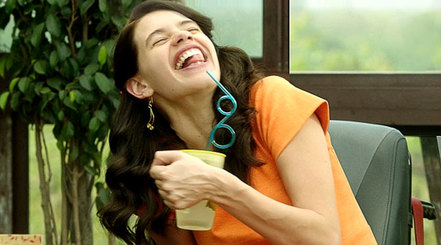 Shonali Bose & Nilesh Maniyar's Margarita, With A Straw is a one-of-a-kind coming of age story focusing on Laila, a young romantic whose general exuberance seems undeterred by cerebral palsy, which has condemned to her to a wheelchair. When Laila finds herself accepted into New York Universities' creative arts program, she decides to leave her home in India, setting off into the unknown. Margarita With A Straw is a story of self discovery, a film that challenges societies pre-defined notion of normality in documenting a young woman's attempt to find herself. Suffering from cerebral palsy, Laila is a character who was never capable of living what we consider "a normal life", and one of the film's stronger elements is how it captures the toll this type of subtle resentment can have on the psyche of an individual who is different, with Laila wanting nothing more than to be treated just like everyone else. One of the first things that jumps out about Margarita With A Straw is the captivating central performance by Kalki Koechlin who completely embodies this sense of wonder and intrigue this young character faces as she steps out into the world on her own. Her performance of a character suffering from cerebral palsy feels nuanced and accurate, capturing Laila's exuberance but also fragility, specifically sexually, as she is a character simply trying to find and understand her own wants, needs, and desires. While Margarita With A Straw is one of the more emotionally tender films I've seen in awhile, the film never seems to emotional pander to the audience, never seeking sentimentality, showing only a nerve for capturing the struggles of a character attempting to live a "normal" life. One of the core relationships of the film is centered around Laila's parents, specifically her mother, a woman who loves her daughter very much but is wary of her well-being given her condition, but is doing her best to embrace her daughter's independence. As a parent, she is fearful and anxious about her daughter finding her place in this world, knowing Laila's naivety could lead her to stumble. One of these main points of naivety revolves around sexuality, with Laila being a character who has never been embraced or viewed in that light. It's her through her sexual exploration that the film exhibits the importance of independence and self-discovery, with Laila entering into both a relationship with a young, blind-woman in NYC, as well as having a sexual escade with one of her male classmates. Laila's specific gender preference is vague but thats not the point, as the film is more focuses on the importance of Laila being able to discover that herself through her individiuality, not what by what society standards dictate as normal. A story of self-discovery, Margarita With A Straw is a film that loudly criticizes the ideal of normality in society, exposing how what is "normal" is dictated by the majority, expressing how discovering ones own individuality is essential to being comfortable and happy in your own skin.  Nicholas Stoller's Neighbors 2: Sorority Uprising is like many comedy sequels before it, a film that astrays very little from the tried-and-true formula of the first film, delivering another entertaining comedy that has more hits than misses. Picking up after the events of the first film, Neighbors 2 finds Mac and Kelly coming to terms with adulthood, preparing to move into a new home across town. Attempting to sell their current home, the couple soon finds that their new neighbors, an upstart sorority, can be just as intrusive to their tranquil domesticated life as the fraternity before it. In an attempt to rid themselves of the problem, Mac and Kelly find themselves forming an alliance with their ex-neighbor, Teddy Sanders, who is struggling to find a purpose in post-college life. Neighbors 2: Sorority Uprising is exactly what one would expect from the comedy sequel, being a dumb, loud, comedy that delivers more of the same, thanks to its stellar comedic cast. While I wish she was given even more to do, Rose Byrne once again steals the film from her costars, showing impeccable comedic timing and making me once again question why this woman isn't in more comedies. The jokes are much of the same variety, most hit, some miss, but what does stand out about Neighbors 2: Sorority Uprising is its not too subtle commentary on the double-standards of society using specifically when it comes to greek life, sexuality, and debauchery. Shelby, the antagonist to Mac and Kelly's peaceful neighborhood, is a college girl who launched a sorority in defiance of the backwards, institutionalized sexism of greek life that says only fraternities can throw a party. While its a bit of a stretch to call Neighbors 2: Sorority Uprising some type of triumph for feminism, the film does without question capture the absurdity of these double-standards in society, specifically around sexuality and general debauchery, subtely and not-so-subtely showcasing the lack of equality. Don't expect any type of profound commentary, this is a Seth Rogen comedy for fucks-sake, but Neighbors 2: Sorority Uprising is fun, well-intentioned, and certainly has something to say about the double-standards of our society when it comes to gender.  Set among the glitz and sleaze of 1970s Los Angeles, Shane Black's The Nice Guys is another delightfully entertaining buddy cop crime comedy centering around a pair of down-and-out detectives who stumble upon a massive, sprawling conspiracy. Featuring the same complex and convoluted plotting expected in an LA Noir story, The Nice Guys is a film that breathlessly captures the intricacies and tropes of these classic LA crime stories, breathing life into the genre thanks to Shane Black's energetic screenplay and great performances by both Russell Crowe and Ryan Gosling. Nice Guys is a film which seamlessly navigates between violence and slapstick humor, with Ryan Gosling in particularly standing out as Holland March, an alcoholic, single-father borderline low-life detective, whose casual investigative approach couldn't be more opposite to the more brutish, thumper stylings of Russell Crowe's Jackson Healy character. Shane Black's films are always full of witty dialogue and charming characters, but what stood out so much about Gosling's turn is just how much physical comedy he brings to The Nice Guys, delivering lots of slapstick-style laughs as he proves himself as a physical actor. While the conspiracy plot of The Nice Guys is quite silly, a hard-to-believe story revolving around a porno and corporate greed, I'd argue the filmmakers acknowledge this, given the scripts penchant to playfully wink and nod at the screen as if to say, "hey now, coincidences and bizarre conveniences are a part of life". The Nice Guys is a film that wants to remain light-hearted even among some of its darker plotting and characterizations, such as Holland March's alcoholism and potential neglect of his daughter, or how Jackson Healy is a complete loner, with the film opting instead to acknowledge these characters struggles but not focus on them, keeping its fast-paced, high energy narrative flow in the process. Shane Black's The Nice Guys is a playful romp through 1970s Los Angeles, a film that personifies the time-period in Los Angeles while delivering a byzantine story of sex, murder, and slapstick comedy that is sure to put a smile on your face. 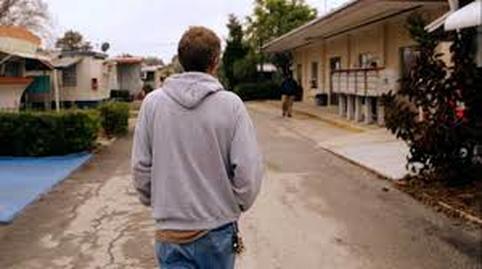 Frida & Lasse Barkfors' Pervert Park is not an easy viewing experience, delivering a humanizing portrait of a group of sex offenders living in the secluded, safe haven of sorts, a Palace Mobile Home Park in St. Petersburg, Florida. Documenting the day to day of this group of offenders struggling to reintegrate into society, Pervert Park is an observant study that lets its subjects tell their own story. The more cynical viewer could argue that the individuals of Pervert Park are hand-picked in an effort to empathize with these "sexual predators", but I'd strongly disagree, as Pervert Park remains very objective on the individual characters it documents, speaking more the society issues which impact these characters inability to rehabilitate themselves, such as the vilification of all sex offenders by society, and the the private, for-profit prison systems, just to name a few examples. Pervert Park is a film truly about Punishment vs. Rehabilitation, with its crowing achievement being that it puts a face and voice on these mysterious, evil "sex offenders" we as a society make generlizations about, with us as a society doing the same sort of cherry-picking in our desire to assume they are all violent sexual predators. I wouldn't say that Pervert Park makes excuses for these characters, it simply showcases how generalizations strip away what makes us human, our individualism, showcasing how this concept applies just as much, if not more, to those who have made terrible mistakes such as some sex offenders, with these negative generalizations pointing towards vengeful punishment instead of empathetic rehabilitation. This film also captures how responsibility is an important step towards rehabilitation, showing how these characters at times struggle to look at themselves in the mirror due to what they've done. Pervert Park doesn't hold back either, making it a difficult watch, as the viewer, at times, can struggle just as much as the sex offender when it comes to them mulling over their past mistakes in detail. While it can be a tough film to experience, Pervert Park is powerful document of sex offenders that gives them a voice beyond the societal generalizations, a film that acknowledges the need for personal responsibility while it comments on the societal failings and asks humanity to be more empathetic towards those that have made terrible mistakes. |
AuthorLove of all things cinema brought me here. Archives
June 2023
|
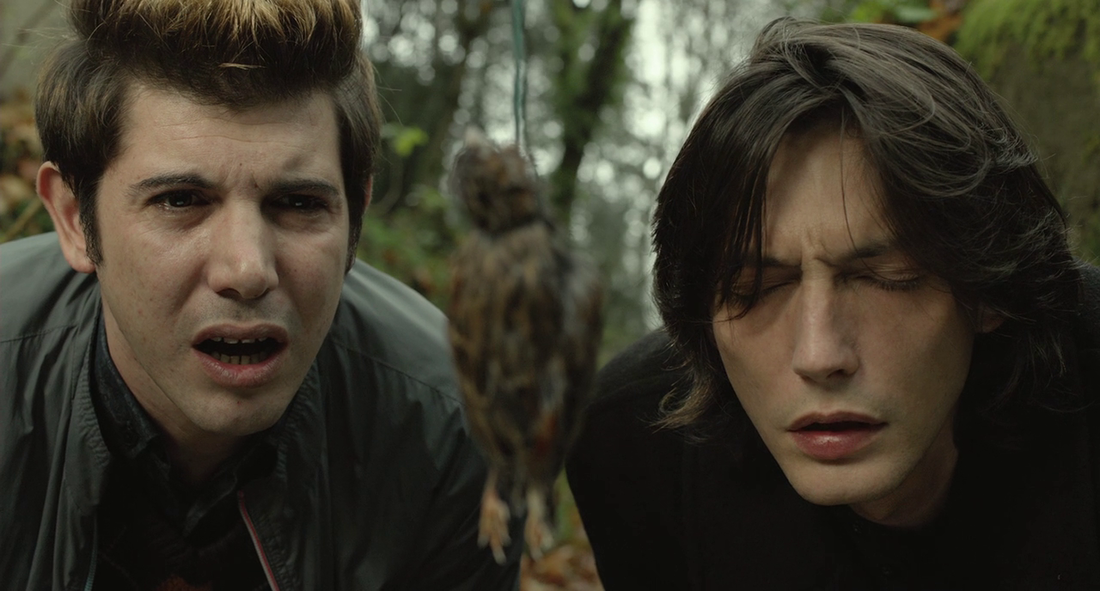
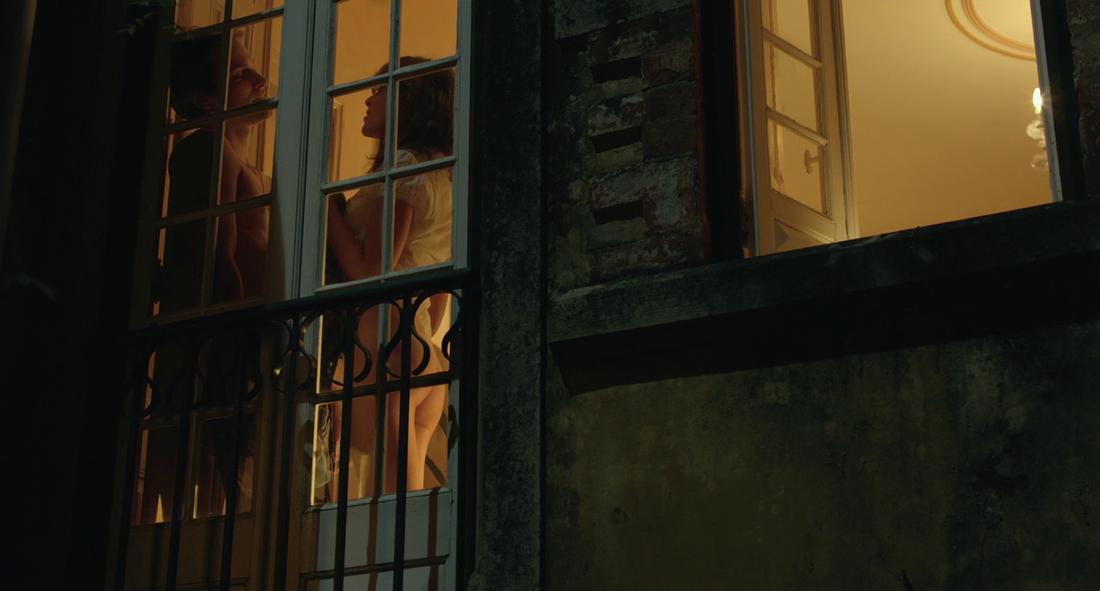
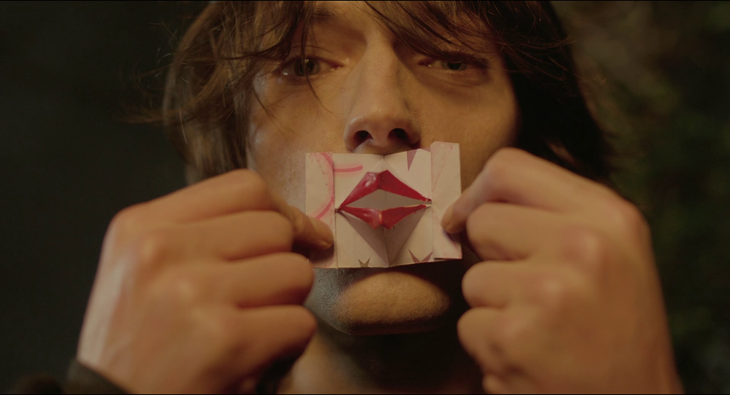
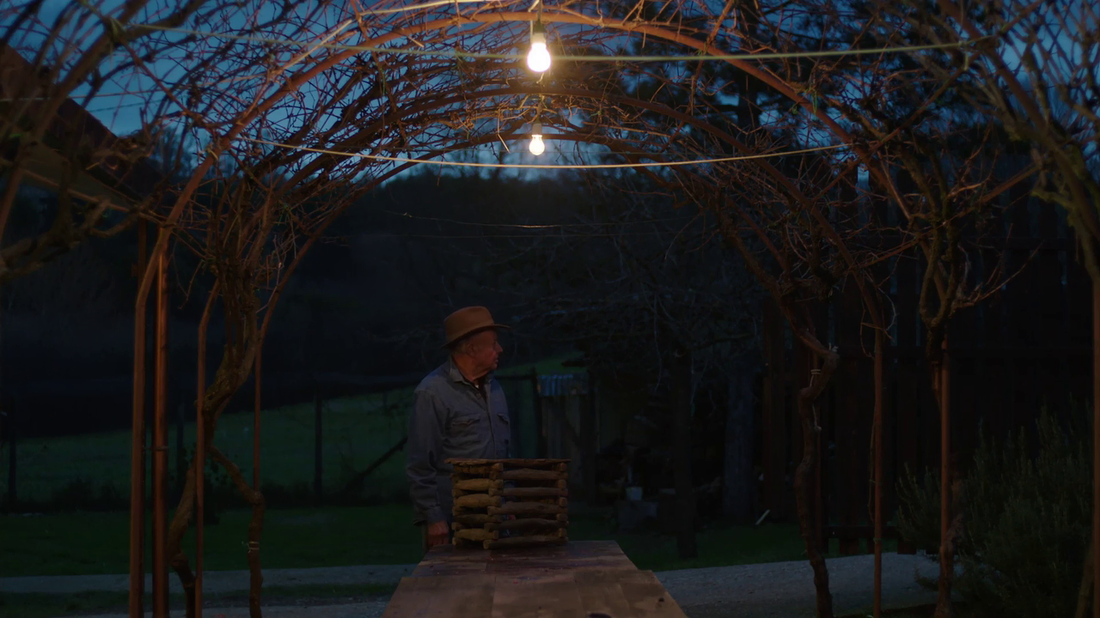
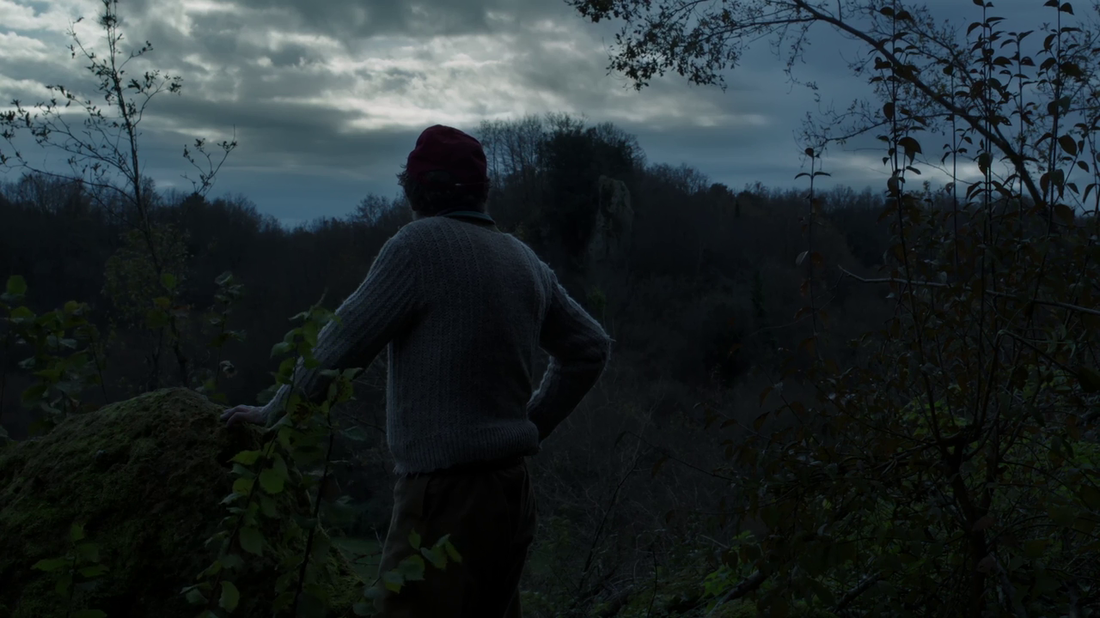
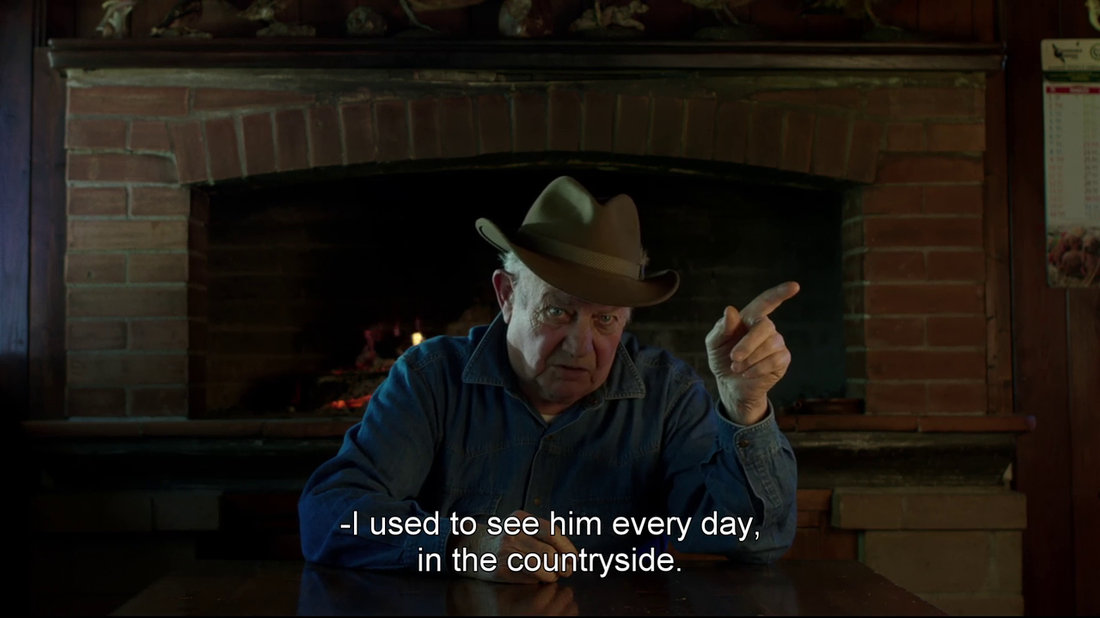
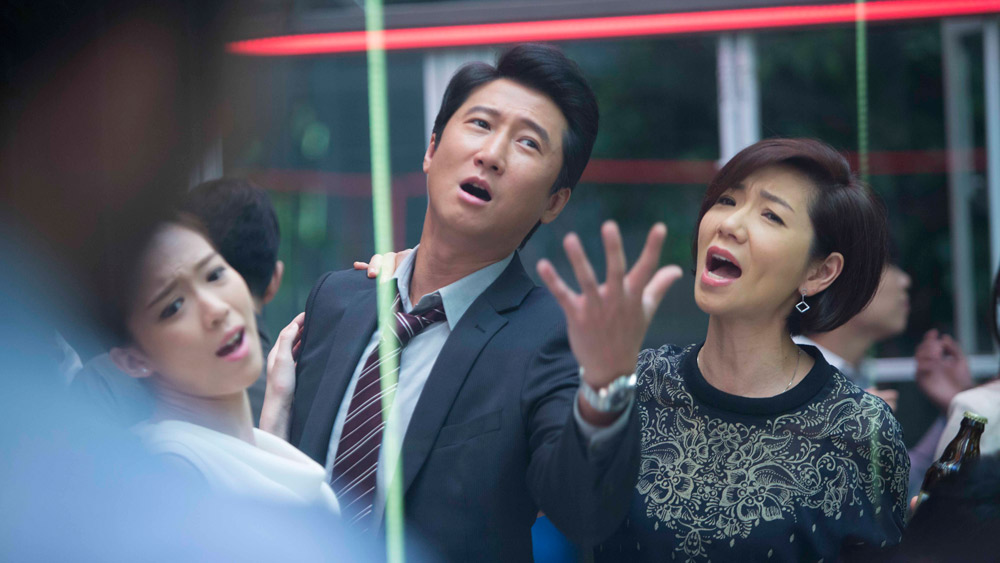
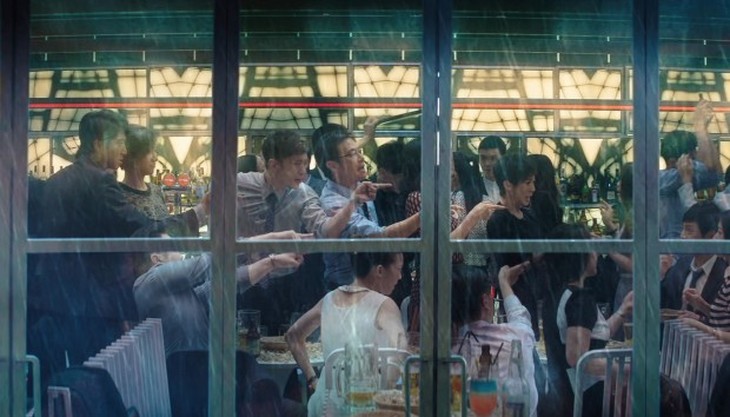

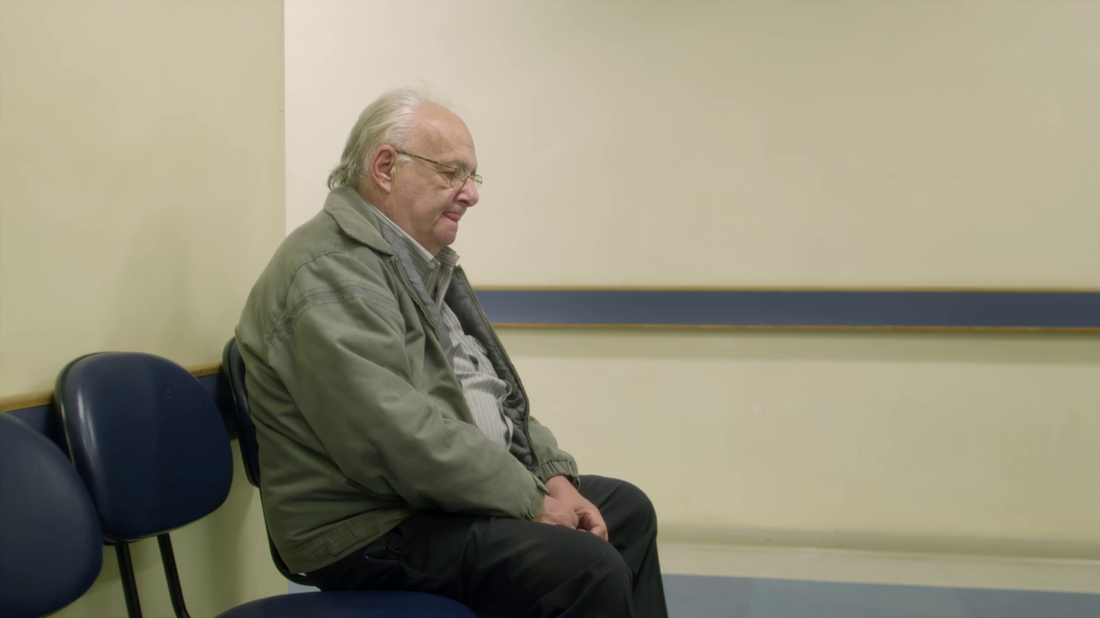
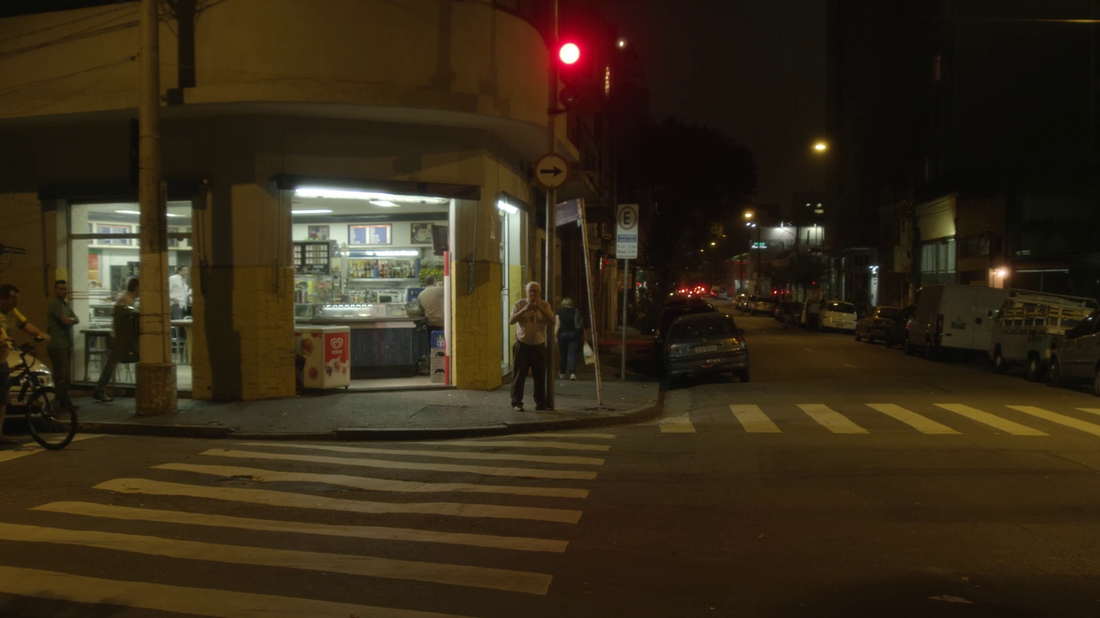
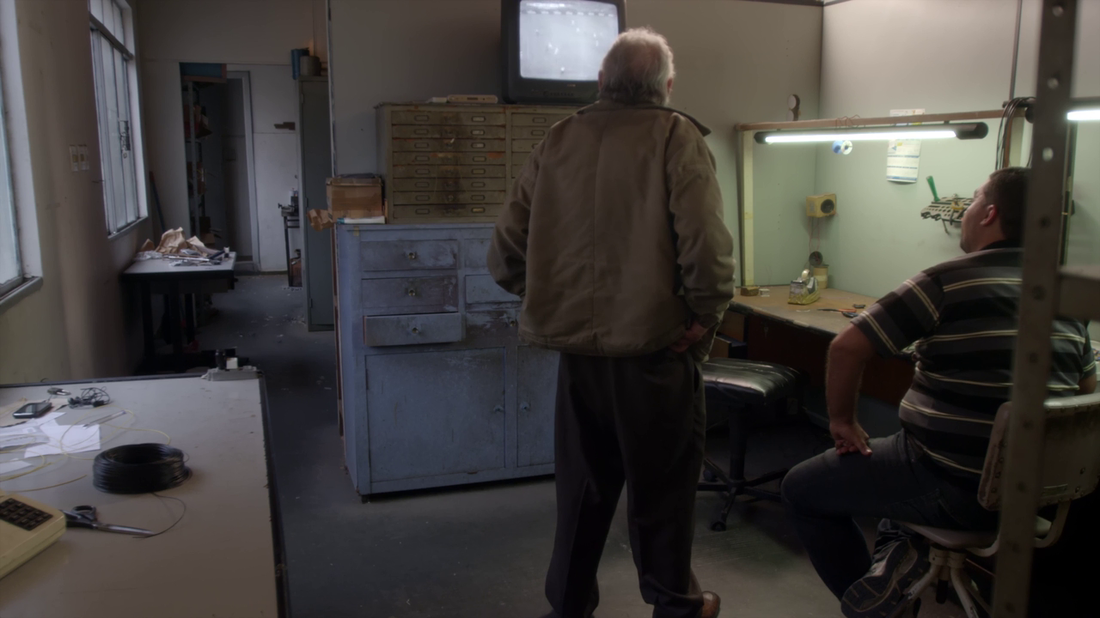
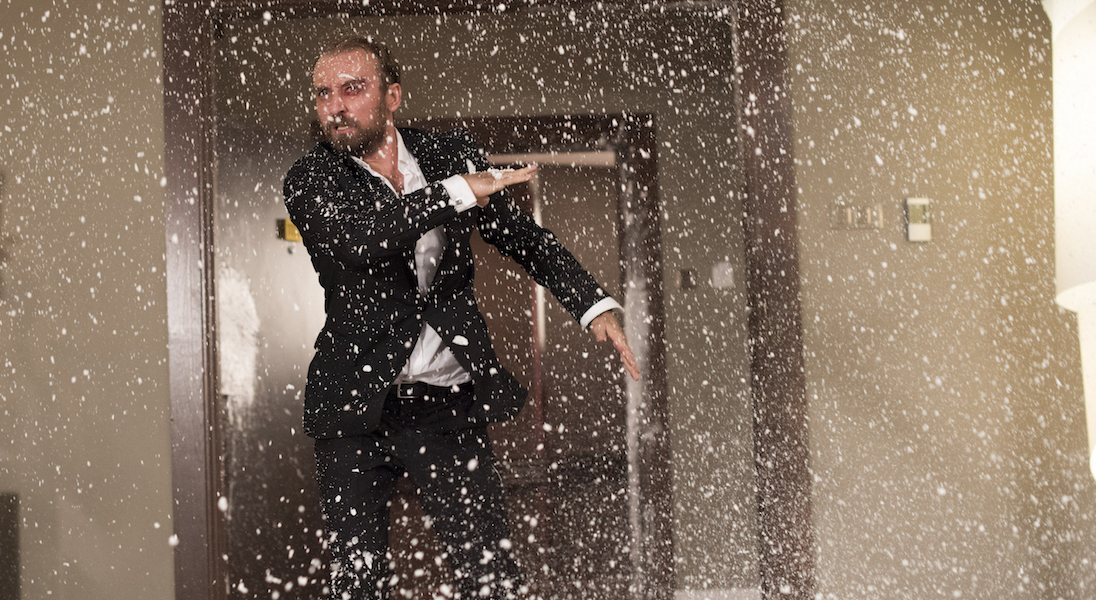
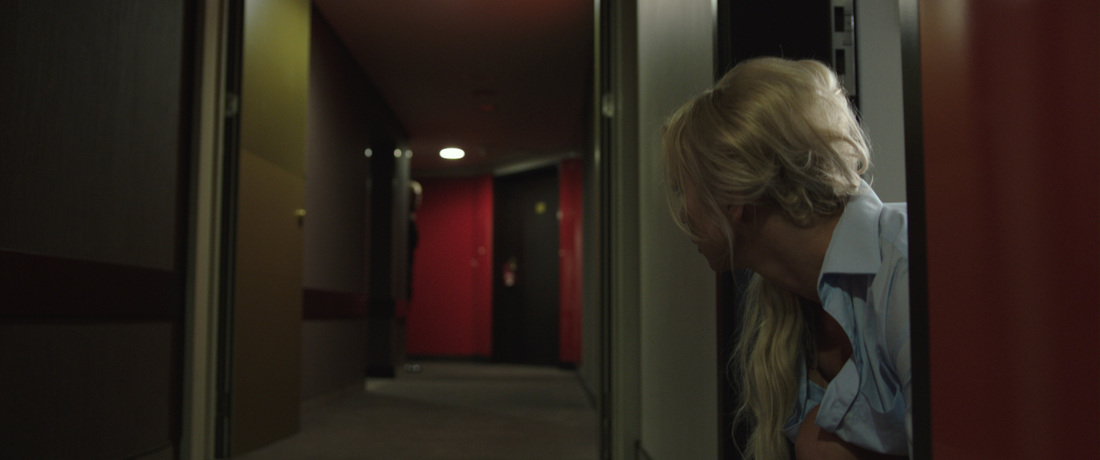
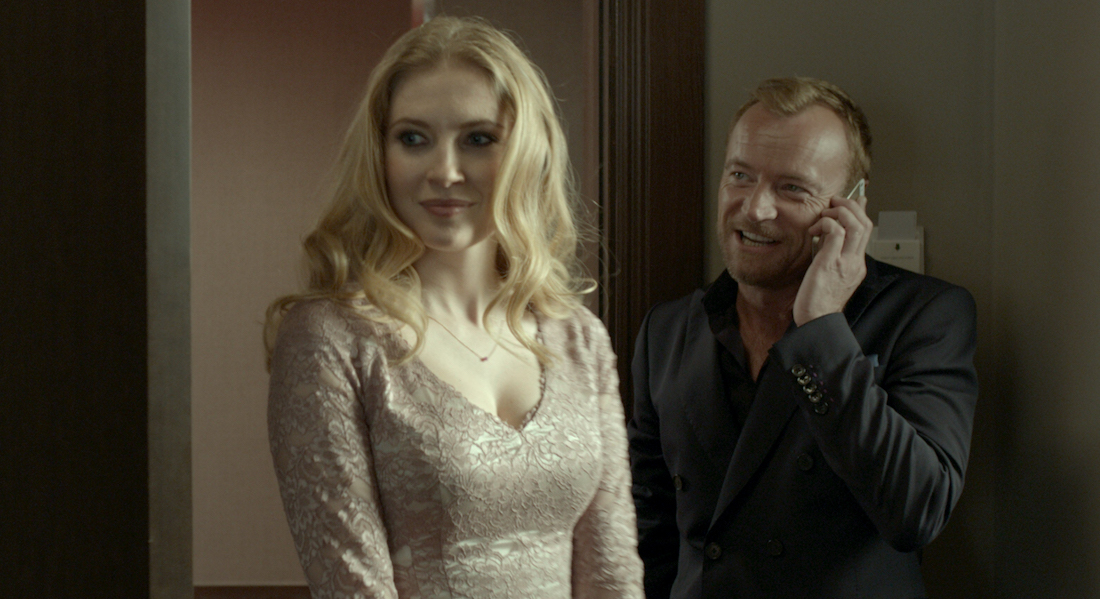

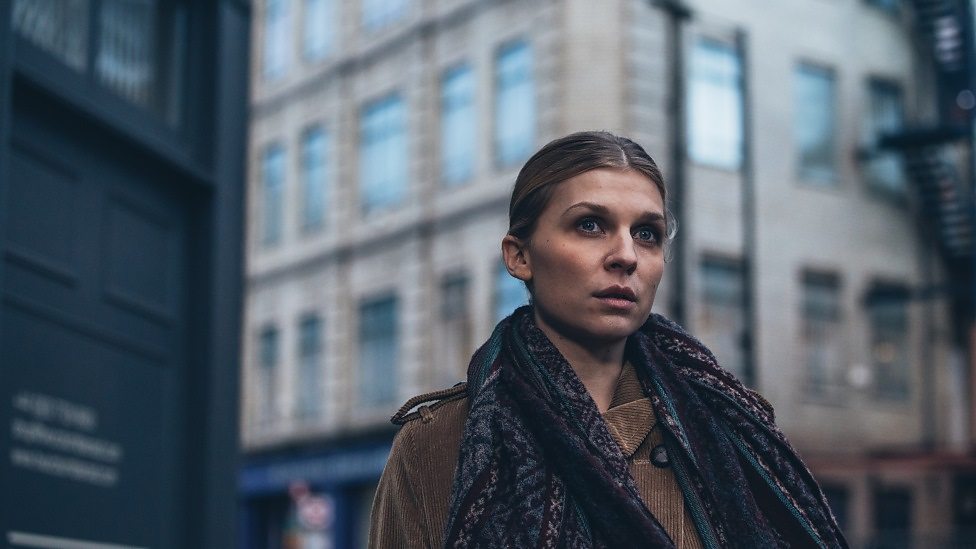

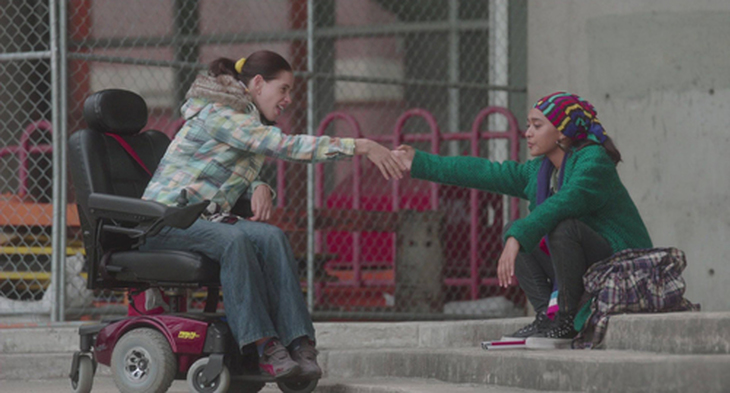
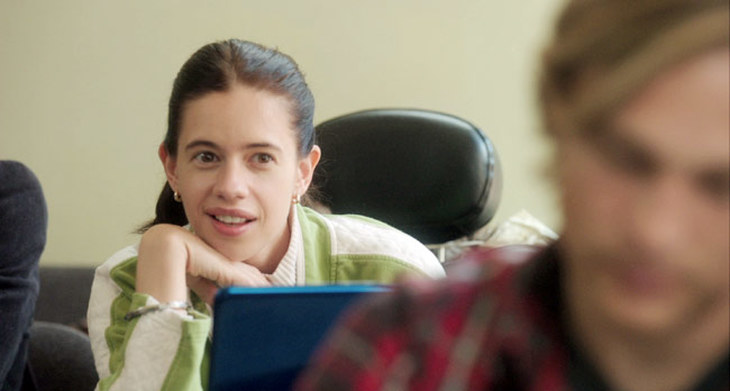
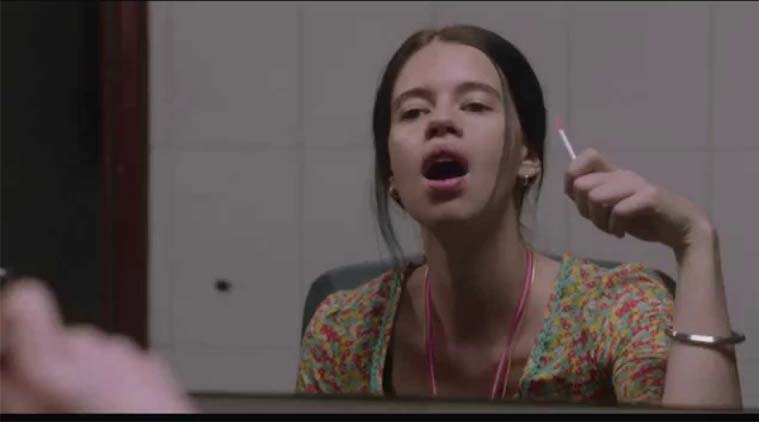
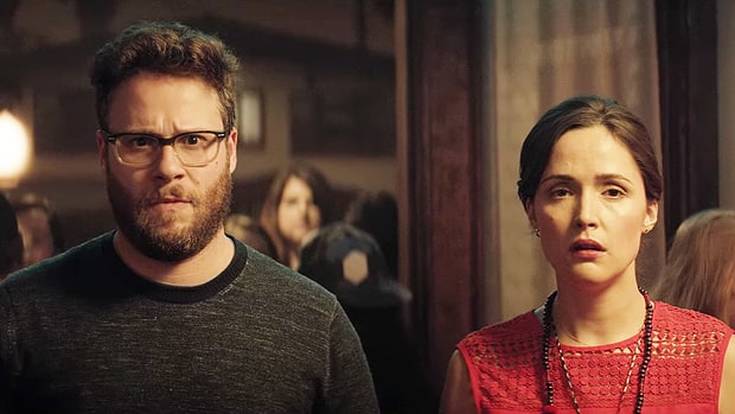
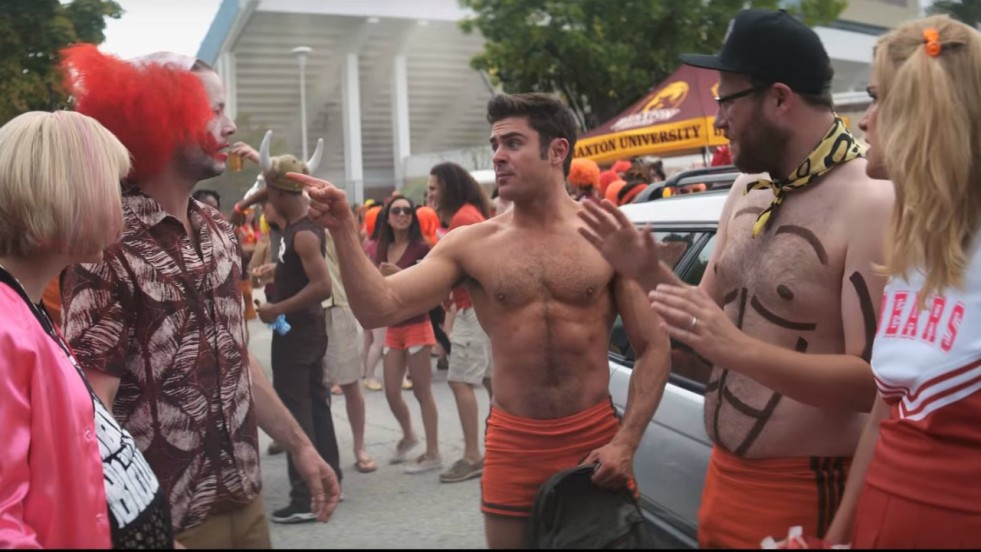
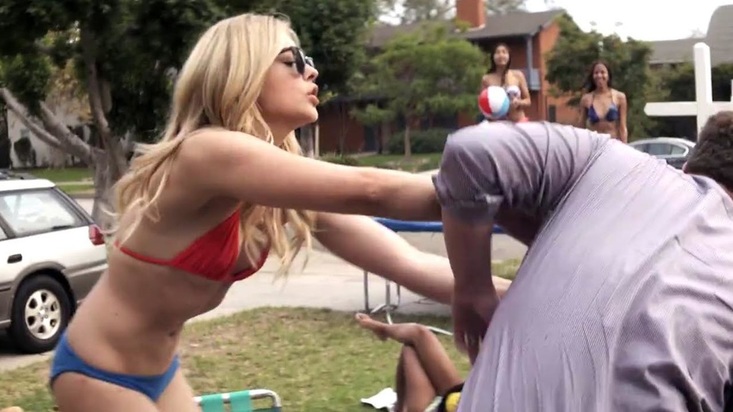
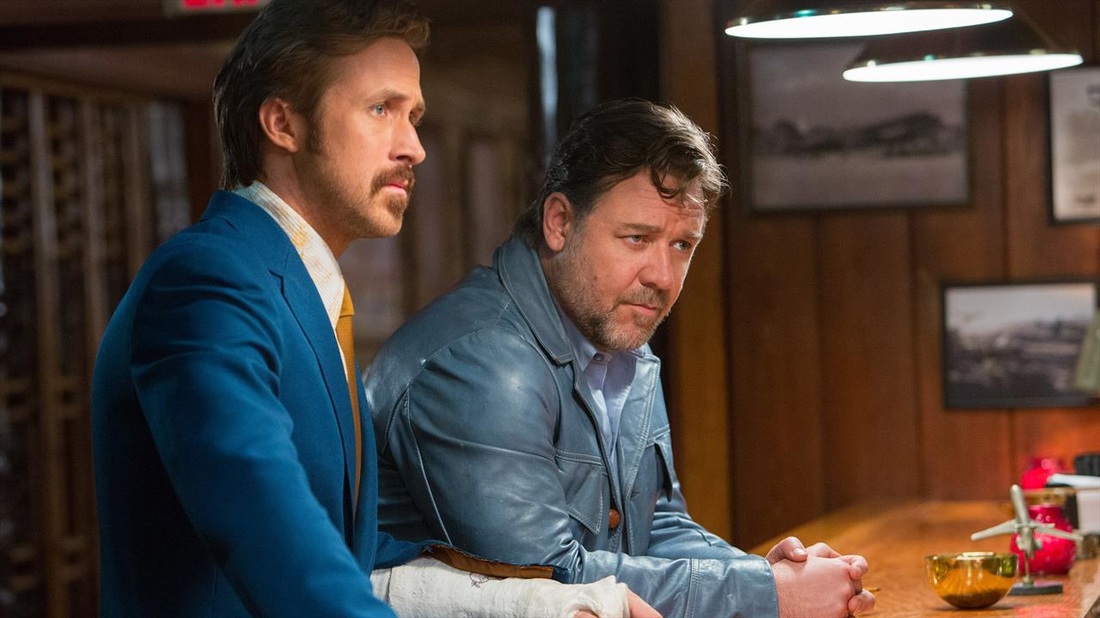
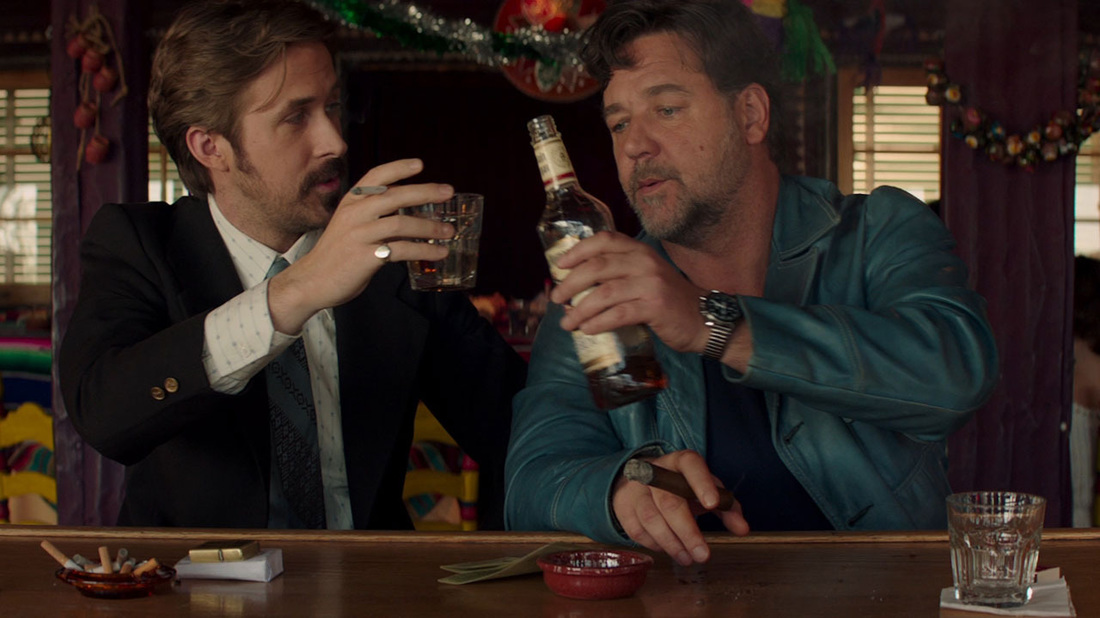
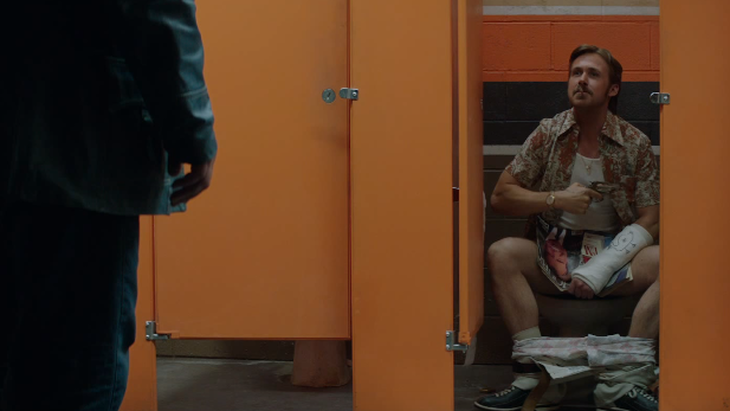
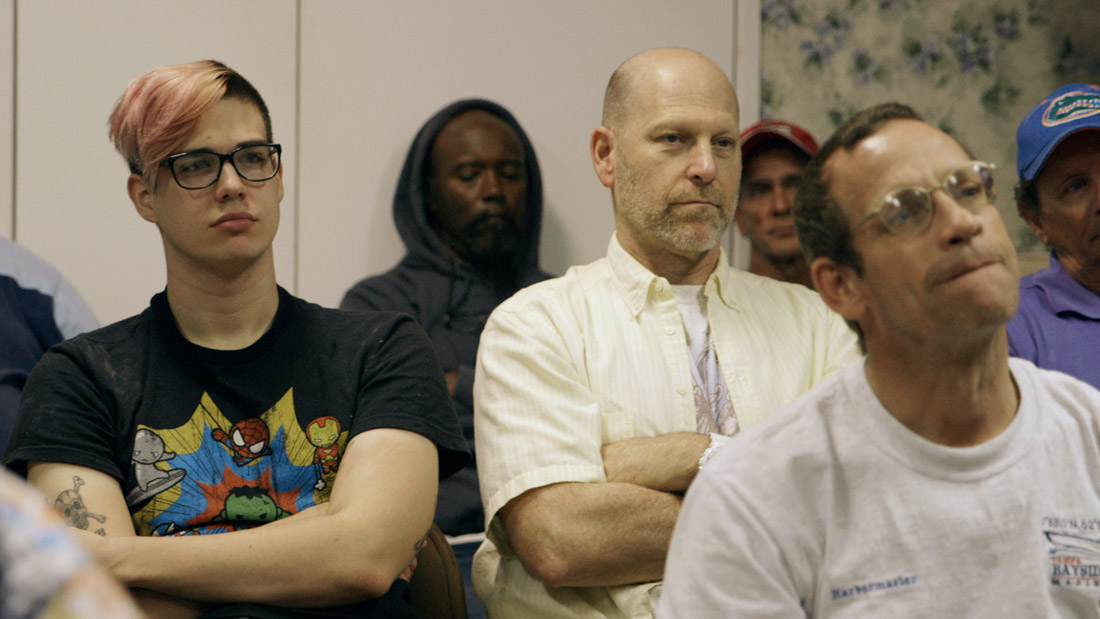
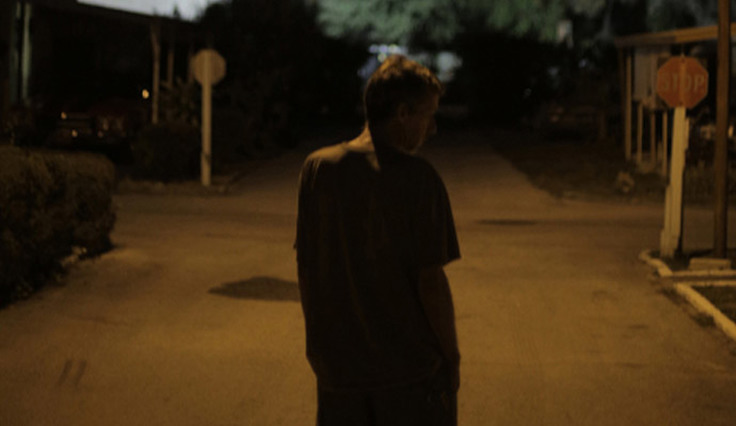
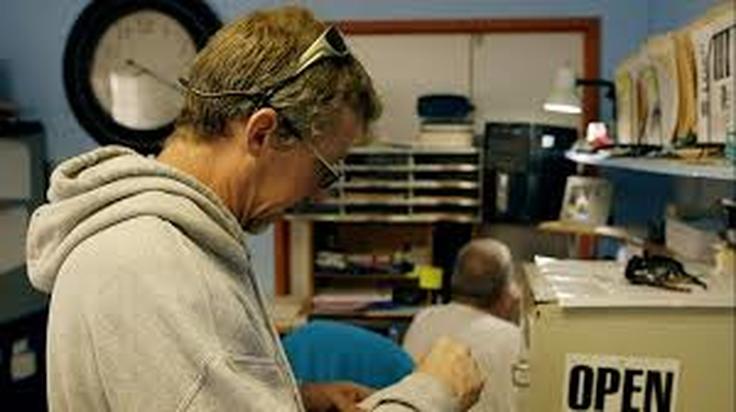
 RSS Feed
RSS Feed
